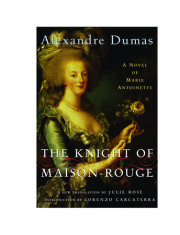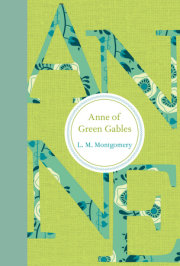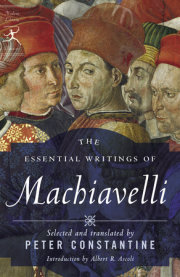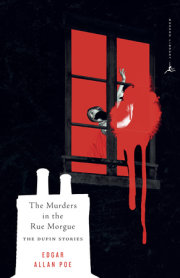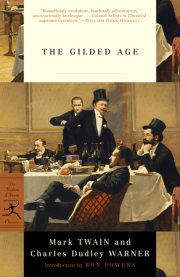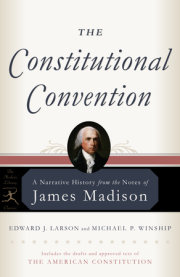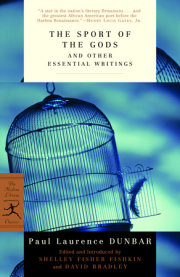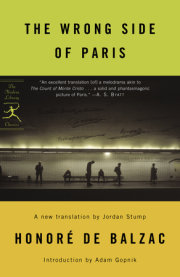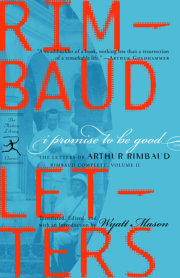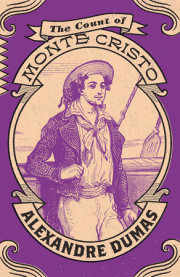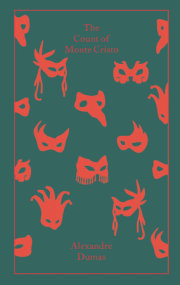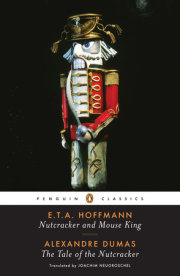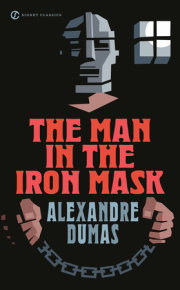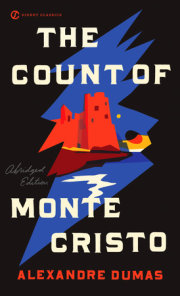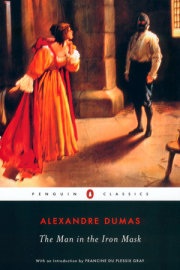1
The Recruits It was the night of the tenth of March, 1793. The bell at Notre-Dame had just struck ten, and each stroke rang out clear and distinct, one after the other, before flying off into the ether like a night bird soaring from some bronze nest, sad, monotonous, and resonant.
Night had descended on Paris. But it was not the usual noisy, stormy Paris night, punctuated by lightning yet cold and misty. Paris itself was not the Paris we know today, dazzling by night with its thousands of lights reflected in its golden mire, the Paris of busy promeneurs, jubilant whisperings, and deliciously sleazy outskirts where fierce feuds and reckless crimes flourish, a wildly roaring furnace. It was a shabby little dive, tremulous, beetling, whose rarely seen inhabitants would run whenever they had to cross a street and scuttle away into their alleyways or under their porte-cochères, the way feral creatures pursued by hunters sink into their burrows.
It was, in a word, the Paris of the tenth of March, 1793, as I think I might have said. But first let me tell you a little bit about the extreme situation that made the capital so different from what it is today, and then we can start on the events that are the whole point of this story.
With the death of Louis XVI, France cut its ties with the rest of Europe. The three enemies it had already defeated—Prussia, the Austro-Hungarian Empire,and Piedmont—were then joined by England, Holland, and Spain. Sweden and Denmark alone maintained their former neutrality, busy as they were watching Catherine II tear up Poland, as it happens.
The situation was alarming. Less looked down upon as a physical force, but also less esteemed as a moral one, since the September massacres and the execution of Louis XVI on the twenty-first of January, France was literally surrounded, like a mere town, by the whole of Europe. England was at the coast, Spain along the Pyrenees, Piedmont and Austria across the Alps, Holland and Prussia to the north of the Netherlands, and at one single point, at Escaut, along the Upper Rhine, two hundred fifty thousand combatants marched against the Republic.
Our generals were thrust back at every turn. Maczinski had been forced to abandon Aix-la-Chapelle and to withdraw to Liège. Steingel and Neuilly were pushed back to the Limburg; Miranda, who had been laying siege to Maastricht, fell back on Tongres. Valence and Dampierre, reduced to beating a hasty retreat, had let part of their supplies be spirited away. More than ten thousand deserters had already fled the army and scattered throughout the interior. Finally, the Convention, putting all its hopes in Dumouriez alone, had fired off letter after letter to the general ordering him to quit the banks of the Biesboos, where he was preparing a landing in Holland, and to return and take command of the army of the Meuse.
Vulnerable at the heart like a living body, France felt in its very heart—for that is what Paris was—every one of the blows that invasion, revolt, or treason leveled against its extremities. Every victory brought a riot of joy, every defeat an uprising of terror. It is not hard to imagine the tumult that broke out with the news of the successive defeats France had just suffered.
On the ninth of March, the day before, the meeting of the National Convention had been among the stormiest ever held; all officers had received the order to join their regiments at the same time. And Danton, that undaunted proposer of things that were impossible but that nevertheless somehow got done, Danton, taking the stand, cried out: “There are not enough soldiers, you say? Let’s give Paris a chance to save France! Let’s ask Paris for thirty thousand men and send them to Dumouriez, and then not only will France be saved, but Belgium will be in the bag and Holland will be ours.”
The proposal was greeted with cries of enthusiasm. Registers were opened in all the forty-eight sections of Paris, which were invited to meet that night. Theaters and cabarets were shut down so that there would be no distractions, and the black flag was hoisted at the Hôtel de Ville as a distress signal.
Before midnight, thirty-five thousand names had been entered in those same registers. Yet what happened that night was a repeat of what had already happened in the bloody days of September: in every section, wherever volunteers signed up, they demanded that all traitors be punished before they themselves left for the front.
Traitors were, in effect, any counterrevolutionaries and secret conspirators who threatened from within a Revolution that was clearly threatened from without. But as you can well imagine, the term was as flexible as the extremist parties then tearing France apart wanted it to be. Traitors were whoever was the weakest. It so happened that the Girondins were the weakest, so the Montagnards—the Mountain—decided the Girondins would be the traitors.
The next day—this particular next day being the tenth of March—all the Montagnard deputies made sure they turned up at the meeting of the Convention. The Jacobin came armed and had just filled the stands after chasing the women away when the mayor of Paris rose and presented himself alongside the council of the Commune.He confirmed the report of the commissioners of the Convention about the general dedication of the citizens and reiterated the wish, expressed unanimously the day before, for an extraordinary tribunal to be set up expressly to judge traitors.
Immediately the cry went up for a committee report, and immediately the committee met. Ten minutes later, Robert Lindet emerged to announce that a special tribunal composed of nine completely independent judges would be appointed and divided into two permanent sections, which would gain convictions by whatever means they chose and would pursue, either directly or at the request of the Convention, anyone and everyone attempting to lead the people astray.
As we know, the term “traitor” was most malleable, and the extension of these powers was far-reaching. The Girondins immediately understood that the whole point of the move was to make it easy to arrest them, and they rose as one.
“We’d rather die,” they cried, “than consent to the setting up of this Venetian Inquisition.”
In reply to this bit of invective, the Montagnards demanded the motion be put to the vote by a show of hands.
“Yes!” cried Féroud. “Yes, let’s vote and show the world who it is that seeks to assassinate innocence in the name of the law.”
A vote was in fact taken and, contrary to all expectations, the majority declared, first, that there would be juries; second, that these juries would be made up of equal numbers from all the departments of France; and, third, that they would be handpicked by the Convention.
The moment these three proposals were accepted, a great roar was heard. The Convention was in the habit of visits from the general public. When they asked what the racket was all about, they learned that a delegation of recruits had turned up, after dining at the wheat market, and was demanding to now parade before them.
The doors were promptly flung open and six hundred men, armed with swords, pistols, and pikes, appeared, half drunk and calling deafeningly for death to all traitors as they trotted round to the sound of wild applause.
“Yes!” Collot d’Herbois shouted back. “Yes, my friends, despite all the intrigues, we will save you, you—and liberty!”
With that he shot a deadly look at the Girondins, one that made it clear they were not out of the woods. Indeed, as soon as the meeting of the Convention was over, the Montagnards fanned out to the other revolutionary clubs, eagerly taking to the Cordeliers and the Jacobins the proposition that traitors be declared outlaws and their throats cut that very night.
Louvet’s wife was at home in the rue Saint-Honoré, close to the Jacobins’ club. She came rushing downstairs when she heard the commotion and ran to the club to see what was going on. When she heard the proposal, she raced back upstairs as fast as her legs would carry her to warn her husband. Louvet swiftly armed himself and went running from door to door to warn his friends, all of whom were out. He learned from one of their servants that they were all over at Pétion’s place and flew there himself, only to find his cronies sitting around quietly debating a bill they were planning to introduce the follow- ing day and which they flattered themselves would be adopted, lulled as they were by a chance majority. Louvet told them what was afoot and that he feared the worst, since the Jacobins and Cordeliers were scheming against them even as they sat. He wound up by inviting them to take forceful measures of their own.
Pétion then rose, calm and imperturbable as ever, went to the window, and looked out at the sky. He stuck his hand out and whipped it back streaming with water.
“It’s raining,” he said. “Nothing will happen tonight.”
Through the open window, the last ringing stroke of the clock told them it was ten o’clock.
And that is what happened in Paris on the day before the tenth and on the tenth; which is why, on the evening of the tenth, in the rainy darkness and the unnerving silence, houses built to shelter the living became as mute and somber as sepulchres peopled exclusively by the dead.
Long lines of wary National Guards, preceded by scouts with bayonets at the ready; troops of citizens belonging to the sections, armed with whatever they could find and sticking close together; gendarmes poking into every nook and cranny, every gaping alleyway: these were, indeed, the sole inhabitants of the town to venture out into the streets, such was the overwhelming feeling that something unfamiliar and terrible was about to happen.
A fine, icy rain was falling. The same rain that had reassured Pétion only intensified the bad mood and malaise of the militia, whose every encounter had the feel of a prelude to a fight, with a reluctant mutual acknowledgment leading to an exchange of the password only begrudgingly and ungraciously. You would have thought from the nervous way people separated and sidled off, looking back over their shoulders, that everyone was afraid of being jumped from behind.
On that same night, when Paris was in the grip of one of those panic attacks that were by now so frequent you’d think people would have gotten used to them, that night when everyone knew without saying that the lukewarm among the revolutionaries were about to be slaughtered, since they had voted mostly with misgivings for the death of the King and now shrank from the death of the Queen (a prisoner, locked up in the Temple along with her children and the King’s sister); that very night, a woman wrapped in a cloak of lilac calico with black fur trim, her head covered by, or rather buried in, the cloak’s hood, glided noiselessly past the houses along the rue Saint-Honoré. She slipped out of sight in the odd doorway or in the shadow of a wall whenever a patrol appeared and stood as still as a statue, not daring to breathe until the patrol had passed; then she would dash frantically ahead again until danger once more presented itself and forced her to stop in her tracks, holding her breath.
The woman had already managed to make it part of the way down the rue Saint-Honoré, thanks to this uncommon stealth, when, at the corner of the rue de Grenelle she suddenly fell upon a troop—not one of the regular patrols but a small band of the brave volunteers who had dined at the wheat market and whose patriotism was further exalted by the number of toasts they had drunk to their future victories. The poor woman gave out a yelp and turned to flee down the rue du Coq.
“Hey, you! You there, citizeness!” cried one of the volunteers, the chief, in fact, for already the need to be told what to do, so natural to human beings, had caused our worthy patriots to appoint chiefs to rule over them. “Hey! You! Where do you think you’re going?”
The fugitive kept running without a word.
“Take aim!” said the chief. “That’s got to be a man in disguise, some aristocrat hoping to escape!”
The sound of two or three guns going off in hands a little too unsteady to be accurate told the poor woman that the jig was up.
“No! No!” she cried, coming to an abrupt halt and retracing her steps. “No, citizen, you are mistaken. I am not a man.”
“Well, then, come forward—and that’s an order!” said the chief. “So tell me where you’re going like that, my little night owl. And don’t beat around the bush.”
“But, citizen, I’m not going anywhere. . . . I’m going home.”
“Ah! You’re going home!”
“Yes.”
“Going home a little late for an honest woman, citizeness.”
“I’ve been visiting a sick relative.”
“Poor little lamb,” said the chief, with a movement of the hand that caused the woman to swiftly step back in fright. “So where’s our card?”
“Card? What card, citizen? What are you talking about? What do you want?”
“Didn’t you read the Commune decree?”
“No.”
“You must have heard the town crier shouting about it?”
“No, I did not. What does it say, this decree? God!”
“First of all, we no longer say ‘God’; we say ‘Supreme Being.’ ”
“Sorry, I forgot. Old habits die hard.”
“Bad habits, aristocratic habits.”
“It won’t happen again. But you were saying . . . ?”
“I was saying that the Commune decree bars any excursion after ten o’clock at night without an identity card. Do you have your identity card?”
“I’m afraid not.”
“Did you leave it at your relative’s?”
“I didn’t know you had to have this card to go out.”
“In that case, we’d better check in at the nearest station and you can have a nice little chat with the captain. If he’s happy with you, he’ll get a couple of lads to escort you home; if not, he’ll keep you till we have more information. To the left, quick, march!”
Hearing the small shriek of terror that escaped the prisoner, the chief of the volunteers realized that the poor woman was more than a little alarmed at such a prospect.
“Oh, dear!” he said. “Something tells me we’ve caught us a most distinguished little bunny rabbit here. All right, my little ci-devant aristocrat, let’s move it!”
With that the chief grabbed the defendant’s arm, clamped it under his own, and dragged her off, sobbing, in the direction of the police station at Palais-Egalité.They had gone as far as the Sergeants’ barrier when, suddenly, a young man of considerable stature, wrapped in a greatcoat, turned the corner of the rue Croix-des-Petits-Champs at the very moment the prisoner was begging to be set free. But the chief of the volunteers yanked her violently on without paying any heed, the young woman whimpering, half in fright, half in pain.
When the young man saw the woman struggling and heard her cry, he bounded from one side of the street to the other to face the troop.
“What gives? What are you doing with this woman?” he asked the man who appeared to be the chief.
“Why don’t you mind your own business instead of asking me questions?”
“Who is this woman, citizens, and what do you want with her?” the young man repeated in an even more commanding tone.
“And who are you, might I ask, to question us?”
The young man threw open his coat to reveal a military uniform on which gleamed an epaulet. “I am an officer,” he said, “as you can see.”
“An officer? What in?”
“In the National Guard.”
“Well, well, well! And what’s that to us, eh?” said one of the troop. “What are the officers of the National Guard to us?”
“What’s he on about?” asked another of the troop in the special drawl and caustic, ironic tone of a true man of the people, or rather of the populace of Paris, beginning to be riled.
“What he’s on about,” the young man replied, “is that if the epaulet doesn’t get respect for the officer, the sword will get respect for the epaulet.”
With that the young woman’s unidentified defender stepped back and swept aside the folds of his coat, allowing a broad and substantial infantry saber to shine brightly in the light of the streetlamp. Then, with a deft movement that spoke of a certain familiarity with armed combat, he seized the chief of the volunteers by the collar of his carmagnole. Holding the point of the saber against the man’s neck, he said, “Now, let’s have a friendly chat.”
“But, citizen . . .” stammered the chief of the volunteers, struggling to get free.
“I warn you: the slightest move you make, the slightest move your men make, and I’ll run you through with my sword.”
While this was going on, two of the volunteers continued to hold the woman. “You asked me who I was,” the young man continued. “You had no right to ask since you don’t command a regular patrol, but I’ll tell you anyway. I am Maurice Lindey. I commanded a battery of gunners on the tenth of August. I am a lieutenant in the National Guard and secretary of the Frères et Amis section. Is that enough for you?”
“Ah, citizen lieutenant,” answered the chief, still threatened by the blade, the tip of which he could feel pressing sharper and deeper into his neck. “That’s a different matter. If you really are who you say you are, that is, a good patriot . . .”
“There. I knew it wouldn’t take much to come to an understanding,” said the officer. “Now it’s your turn. Tell me, why was this woman crying? What were you doing to her?”
“We were just taking her to the station.”
“And why were you taking her to the station?”
“Because she doesn’t have an identity card and the latest decree of the Commune states that anyone mad enough to be out in the streets of Paris after ten o’clock at night without an identity card is to be arrested. Have you forgotten our beloved homeland is in danger and that the black flag is flying over the Hôtel de Ville?”
“The black flag is flying over the Hôtel de Ville and our homeland is in danger because two hundred thousand slaves are marching on France,” the officer retorted. “And not because some woman is running around the streets of Paris after ten o’clock at night. But never mind, citizens, there’s a Commune decree, so you’re within your rights. If you’d only told me that straightaway, things would have been quicker and a lot less unpleasant. It’s a fine thing to be a patriot, but it doesn’t hurt to be polite. The first officer citizens should respect, it seems to me, should be the one they themselves elected. Now take this woman away if you want, you’re free to go.”
“Oh, citizen!” This time it was the woman. She lunged at the officer and took hold of his arm, having followed the debate in a state of profound anxiety. “Please don’t abandon me to the mercy of these drunken barbarians.”
“As you wish,” said Maurice. “Take my arm; I’ll escort you to the station with them.”
“To the station,” the woman repeated in fright. “To the station! But why take me to the station? I’ve done no harm to anyone.”
“We are taking you to the station,” said Maurice, “not because you have done any harm, not because we suppose you capable of doing any harm, but because a Commune decree prohibits anyone going out without a card and you don’t seem to have one.”
“But, monsieur, I didn’t know.”
“Citizeness, you will find decent men at the station who’ll appreciate your reasons and from whom you have nothing to fear.”
“Monsieur,” said the young woman, squeezing the officer’s arm. “It is not insult I fear at this point. It is death. If you take me to the station, I am finished.”
Copyright © 2003 by Alexandre Dumas. All rights reserved. No part of this excerpt may be reproduced or reprinted without permission in writing from the publisher.


